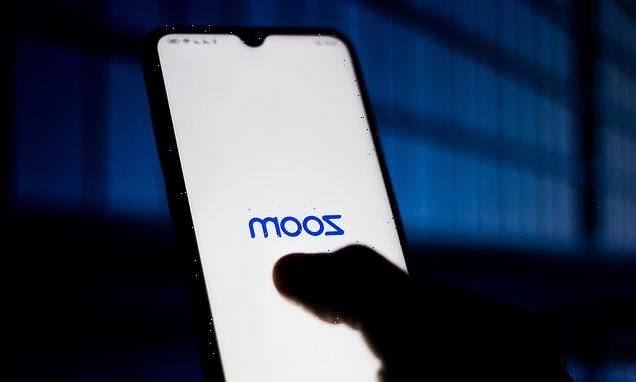An ENERGY company has launched a nifty new tool which tells you just how much your bills could shift after changing your direct debit.
The tool is offered by Octopus Energy, which specialises in sustainable energy.
It allows you to see how increasing or decreasing your monthly direct debits will affect your account balance overall.
More than half of consumers pay their energy bills by direct debit, according to energy regulator Ofgem.
Paying monthly by direct debit means you pay the same each month even though your actual usage can vary, and is usually higher in winter and lower in summer.
Many energy customers have complained of higher direct debits despite using less energy in the warmer months.
Read more in Money
Thousands of workers set for £2,000 cost of living bonus – are you one of them?
Sun Squeeze team saved these readers over £3k – how you can do it too
Suppliers have hiked the monthly payments to cover the cost of bills that will be higher this winter.
Now Octopus has created a balance forecast tool. It works out what your overall balance will be based on different monthly direct debit amounts.
It also explains why the company sets the direct debits it does.
The tool is only available to certain Octopus Energy customers – you won't be able to use it if you have a different supplier.
Most read in Money
CASH BOOSTUniversal Credit: Brits to get £1,200 grant – how to check if you're eligible
I'm a money expert – get £3,000 NOW while waiting for cost of living help
Thousands of workers set for £2,000 cost of living bonus – are you one of them?
You could be entitled to 12-MONTH rent refund – here's how to get money back
The following Octopus Energy customers won't be able to use the tool yet: you have a smart tariff, you don't pay monthly by direct debit, or you switched tariffs recently.
Those who can use it can find it when they log into their account online.
You can enter an amount for a monthly payments and it will give you a rough price for what your account balance will look like overall – and whether you can expect to be in a credit or debit.
Greg Jackson, Octopus Energy CEO, called for tools like this to become industry standard.
He said: “Our customers find this really useful.
"It's often hard to understand if your direct debit is set correctly when energy use varies so much from winter to summer.
"All companies should do this – it makes energy less confusing and puts customers in control."
Pete Miller, creative director and head of customer experience, added: "Customers understanding their bills in more detail is another step in making this energy crisis a bit more manageable."
One Octopus Energy customer took to Twitter to share his fondness for the company's latest feature.
He said: "Really like this balance forecast tool @OctopusEnergy have.
"When they asked to raise our direct debit (from £92pcm) I was initially horrified.
"But by showing it visually, I realise that it’s a necessary evil."
But other customers have pointed out some flaws in the tool.
One user said on Twitter the tool was "good", but didn't take into account the £400 energy bill grant which around eight million families are due to get in the Autumn.
Octopus Energy replied: "It's super early days but we're still tweaking and adding things that'd be useful so will definitely think about this."
Meanwhile, another user mentioned the predicted rising energy price cap later this year, saying: "Does it build in any assumptions on October rate price rise?"
Octopus Energy replied: "We're still making changes and adding things that'd be useful so will definitely bear this in mind."
It comes after a warning bills could go up another £1k this winter.
Martin Lewis said more than 20million households which are on default tariffs could see the increase in October.
The energy price cap is set by Ofgem twice a year and limits the per unit price of energy suppliers can charge.
The typical dual fuel bill is £1,971 but this number can change depending on usage.
However, Martin said experts at Cornwall Insights, calculate bills could go up by around £1,000 later this year.
The money saving expert took to Twitter to share his calculations.
What to do if you think your direct debit is unfair
Any billpayer can challenge their direct debit amount if they think it's too high.
But beware that if you pay too little now you might end up with a negative balance later on.
If you pay by direct debit, then this monthly amount should be "fair and reasonable".
If you don't think it is, you can complain to the company in the first instance.
Your supplier must clearly explain why it's chosen that amount for your direct debit.
If you've got credit on your account, you have every right to get it back – although some experts recommend keeping it there through the summer, so your bills don't go up in the winter when you use more energy.
Your supplier must refund you or explain exactly why it won't and the regulator, Ofgem, can fine suppliers if they don't do this.
If you are disputing a bill, taking a meter reading is a must.
That way the company can't rely on estimates, which may lead to you being overcharged – a reading leaves no room for error either, as it shows precisely what you actually used.
If it's lower than your estimate, you can ask your provider to lower your monthly direct debit to a more suitable amount.
Martin Lewis' MoneySavingExpert team says that if you find you're always in credit, you should request the direct debit be lowered to reflect your actual annual usage and meter readings.
But beware that you don’t end up in debt later on with a bigger catch up bill at the end of the year from underpayments racking up.
If you don't have success in negotiating a lower payment then you can put in a complaint.
Read More on The Sun
I gave birth to my rag doll husband’s baby – I gained weight & had contractions
Britain’s most expensive 99 ice cream is being sold for a FIVER
You can usually get in touch with your provider by email, letter or telephone, but keep a record of contact that you make so you can reference it later if need be.
If you're not happy with the outcome you can take it to the independent Energy Ombudsman to dispute, but there are a few steps before you get to that stage.
We pay for your stories!
Do you have a story for The Sun Online Money team?
Email us at [email protected]
Source: Read Full Article










